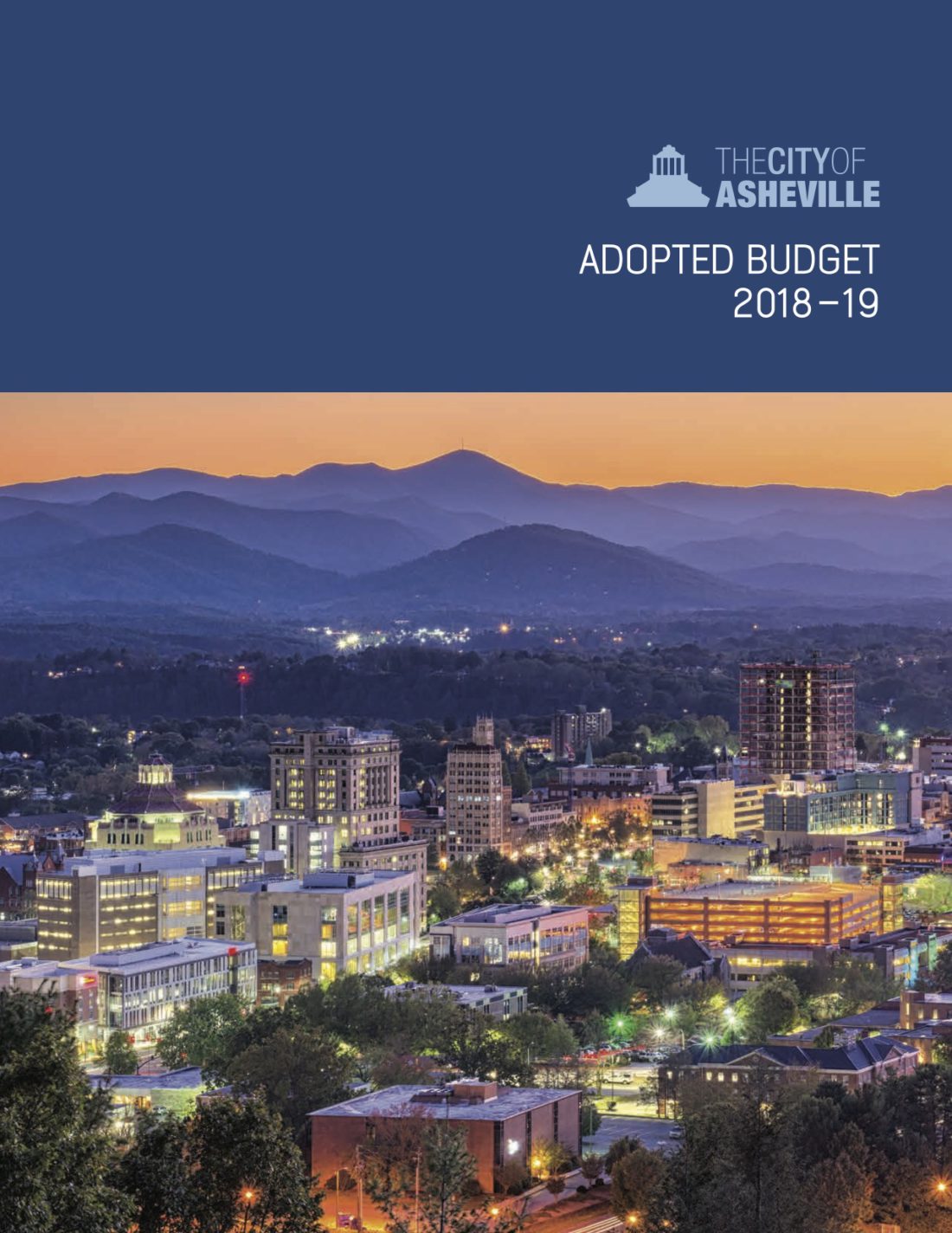When it comes to Pack Square Park, Vice Mayor Gwen Wisler suggested at Asheville’s Sept. 25 budget work session, Buncombe County should pay to play. After Roderick Simmons, the city’s parks and recreation director, explained that the county owns a portion of the park but had reneged on a spoken agreement to help the city fund its upkeep, Wisler responded, “Well, let’s fence it off.”
The exchange came during the second of five scheduled monthly events putting Asheville’s budget under the microscope. Offered in response to public demand for greater transparency in the city’s finances, the work sessions allow each governmental department to explain how it uses its portion of more than $180 million in spending.
The sessions also provide a forum for Council members to seek information on specific budget items, such as Pack Square Park maintenance. Simmons said that the city had picked up the slack after the Pack Square Park Conservancy, a public-private partnership tasked with funding the space, dissolved in 2012.
“There never was a formal agreement saying that [Buncombe County] would provide X amount of funding,” Simmons noted. “It was kind of just a mutual conversation.”
Mayor Esther Manheimer said the city would have to re-enter negotiations with the county but warned against taking too hard a line, lest the two governments devolve into tit-for-tat retribution. “I fear opening that can of worms,” she said in response to Wisler’s comment about installing a fence on the Pack Square parcel. “For example, [the county owns] the patch right in the middle of where the Montford Park Players perform.”
On a larger scale, Simmons said his department was looking to bring many maintenance operations currently assigned to outside vendors — the current Parks and Recreation budget contains nearly $1.56 million for contracted services — back under direct city supervision. He added that the department had been downsized during last decade’s recession and has yet to fully recover.
Representing the city’s third-largest department by spending behind water and police, interim Fire Chief Chris Budzinski encouraged Council to continue investing in new equipment for the Asheville Fire Department. Maintaining a fleet of vehicles an average of 10 years old, he said, is the AFD’s biggest operational expense at $680,000 for the current fiscal year.
Budzinski noted that the AFD had trimmed roughly $100,000 from last year’s maintenance budget thanks to vehicle replacements. “We’re hopeful that we can continue with an apparatus replacement program that continues to help us reduce the cost of the maintenance of those vehicles,” he said.
Wisler again drilled down to specifics as she asked Budzinski about the costs and benefits of operating specialized emergency services. The AFD maintains a swift-water rescue unit, dive team and hazardous materials response team, the latter of which responds to incidents throughout the state’s 19 westernmost counties. “I do feel like we’re possibly offering services to our neighboring communities at our citizens’ cost,” Wisler said.
The interim chief responded that the department would analyze expenses and reimbursements for those services. Asheville’s distance from other large cities, Budzinski added, means it can’t rely on outside help for a timely response to unusual incidents. “It’s one of those things we kind of need to provide to our residents quickly,” he said.
Leaders from the city’s communications and human resources departments also presented their plans to Council. Dawa Hitch, communication and public engagement director, said her team benefited from “a community that is very much more engaged than others.” However, she pointed out that citizens can become frustrated when their feedback doesn’t get routed to the proper department inside city government.
Hitch called for an expansion of CAPE, which currently accounts for just over $700,000 in city spending, to meet that need, as well as to provide better communication during crises. “We do need additional resources, and that is a request that has been made,” she said.
In contrast, interim Human Resources Director Jaime Joyner shared how her department had already been expanded with two new positions, the first for “organizational development and employee engagement” and the second for “talent acquisition support.” Those roles bring HR’s total full-time headcount up to 21.6, with total spending of roughly $1.66 million.
The challenges facing HR, Joyner said, have remained consistent over time. Like other employers in the region, the city faces a low-unemployment labor market and difficulty keeping quality staff. “Retaining employees through employee engagement and our benefits and compensation package is key,” she explained. “We have to set ourselves apart from other employers.”
The next budget work session takes place at 3 p.m. Tuesday, Oct. 23, in council chambers on the second floor of City Hall at 70 Court Plaza. The full meeting agenda and supporting documents are available five days before each meeting date at avl.mx/59r.




Before you comment
The comments section is here to provide a platform for civil dialogue on the issues we face together as a local community. Xpress is committed to offering this platform for all voices, but when the tone of the discussion gets nasty or strays off topic, we believe many people choose not to participate. Xpress editors are determined to moderate comments to ensure a constructive interchange is maintained. All comments judged not to be in keeping with the spirit of civil discourse will be removed and repeat violators will be banned. See here for our terms of service. Thank you for being part of this effort to promote respectful discussion.